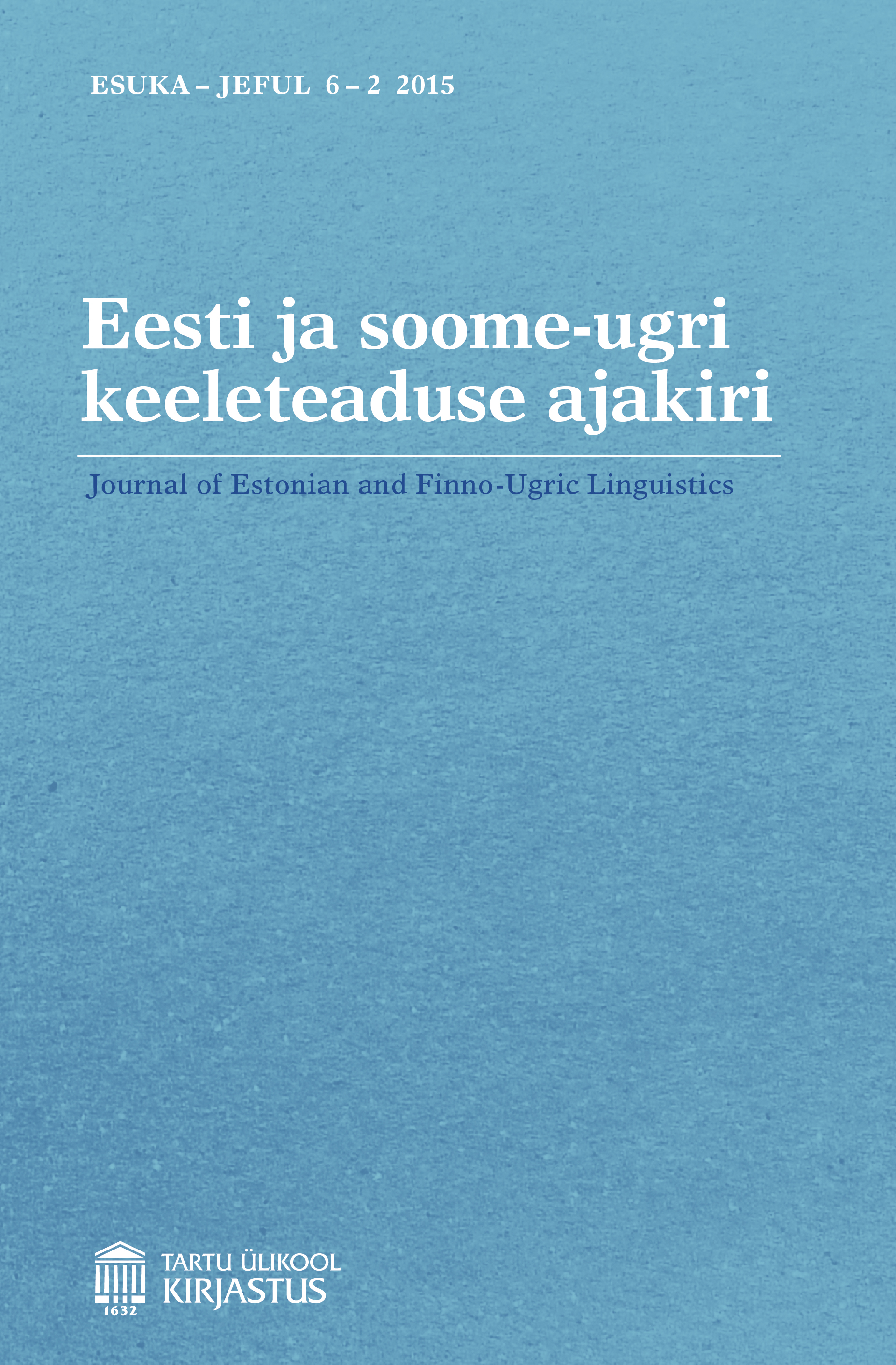Northern Mansi possessive suffixes in non-possessive function
DOI:
https://doi.org/10.12697/jeful.2015.6.2.10Keywords:
Ob-Ugric languages, possessive suffixes, reference-point construction, nonprototypical use, anaphoric and deictic reference, information structureAbstract
Research on possessive suffixes in Ob-Ugric languages, as in most Uralic languages, has primarily viewed them in the light of their terminological denomination – i.e., as markers of possessive relations, traditionally referred to as their prototypic use. Whenever this onomasiology-based approach fails, the usage of possessive suffixes is considered non-prototypical; a secondary or determinative function of possessive suffixes is cited. In my paper, I will claim that the original function of possessive suffixes in Ob-Ugric languages is not to denote a possessive relation and, in consequence, there is no concept of non-prototypical use. Instead, possessive suffixes denote a relation between two entities, whose default interpretation is a possessive one. I will claim that both, the prototypic and the non-prototypic use is an outcome of the very same property of possessive suffixes, which is to establish reference. In consequence, possessive suffixes play an important role in information structure.Downloads
Download data is not yet available.
Downloads
Published
2015-12-18
How to Cite
Janda, G. E. (2015). Northern Mansi possessive suffixes in non-possessive function. Eesti Ja Soome-Ugri Keeleteaduse Ajakiri. Journal of Estonian and Finno-Ugric Linguistics, 6(2), 243–258. https://doi.org/10.12697/jeful.2015.6.2.10
Issue
Section
Articles


